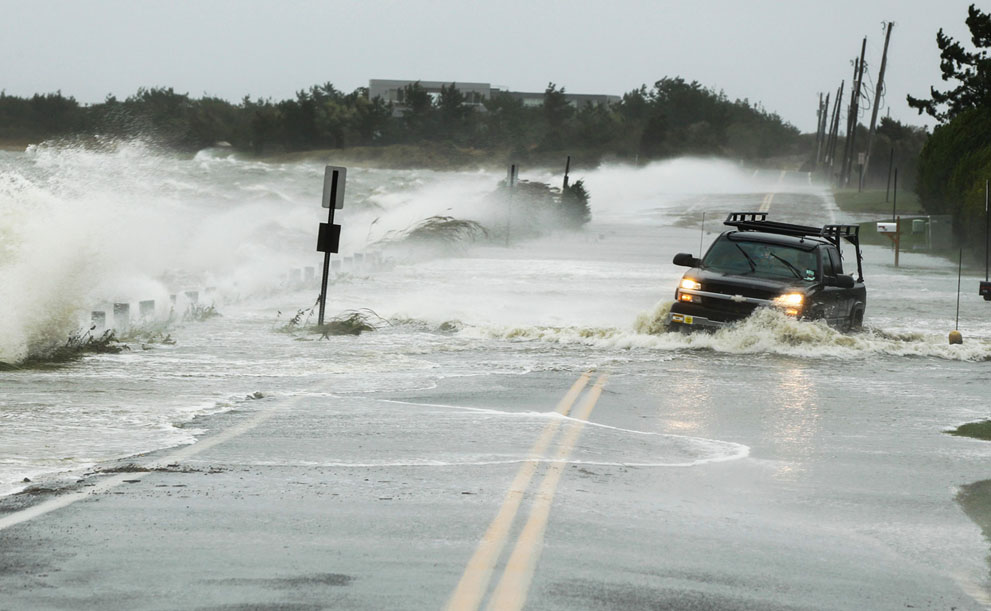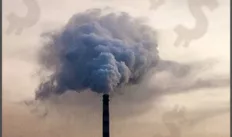Climate change is an existential threat facing humanity and many other species. In December 2015, representatives from 196 parties negotiated the Paris climate accord. The agreement sets a goal of no more than a 2 degree Celsius rise in global temperatures as the upper limit to avoid climate catastrophe.
Climate scientists predict warming beyond that level would result in a significantly different Earth with rising sea levels, super storms, droughts and extinctions.

While it is not a binding treaty, the Paris agreement calls on countries to make voluntary national pledges to reduce emissions and provide periodic updates on their progress. As of August 2017, 195 countries have signed the agreement, 159 of which have ratified it. In August 2017 the U.S. government, which had signed the agreement, formally communicated its intention to withdraw from the agreement as soon as it is eligible to do so. Prior to President Trump’s announcement, a letter signed by the executives of major companies, including Facebook, Google, Apple, and Unilever, urged the president not to abandon the agreement. After President Trump made that statement, the other signers reiterated their support. More than 200 U.S. mayors and governors have vowed to honor the accord, including Mass. Governor Charlie Baker.
Two-year drought, record-breaking heat and snow - we have already seen the impact of more extreme weather here in Massachusetts. If 2012’s Hurricane Sandy had hit Massachusetts five and a half hours earlier, during high tide, the destruction here would have been more similar to the devastation experienced by New York and New Jersey.
Burning global oil, gas, and coal reserves at current rates (31 gigatons of carbon dioxide annually worldwide) will push us past the 2 degree tipping point by 2030. The stakes could not be higher. Unless we transform to a clean energy future, in the words of former NASA scientist James Hansen, "We conclude that multi-meter sea-level rise would become practically unavoidable. Social disruption and economic consequences of such large sea-level rise could be devastating. It is not difficult to imagine that conflicts arising from forced migrations and economic collapse might make the planet ungovernable, threatening the fabric of civilization."
The close interconnection between our current energy system and the emerging climate crisis demonstrates that energy is not only the key problem we need to solve; it is also the solution. Fossil and nuclear resources are by definition nonrenewable. They are a one-time endowment, one that current generations must use prudently and intelligently in order to transition to a world powered entirely by renewable energy resources. This will require a paradigm shift in how we think about energy, a shift from a system based on extracting energy sources from the ground toward one based on harnessing natural and abundant flows from the air, the water, and the sun. The challenge of this century is to make this transition a reality.
50% Oil Free by 2030, 100% Renewable by 2050
To avoid the worst outcomes for life on Earth, Sierra Club has set the following goals:
- A carbon-free electric sector by 2030
- 50% reduction in oil use by 2030
- Economy-wide, 100% clean energy by 2050
The goal of fully transitioning the world's energy mix toward renewable energy sources is no longer a utopian ideal; it is being achieved in a number of places around the world today.
Massachusetts: A Leader
Tackling climate change will require global action - but someone must lead. As the United States is responsible for 29% of historical cumulative global emissions of carbon dioxide, more than three times the amount emitted by the next highest emitter (China), the U.S. has a greater responsibility to lead. As the U.S. Congress remains gripped by gridlock, not infrequently leading to government shutdowns, leadership on this issue will have to come from states, showing other states and then the federal government what is possible.
We are fortunate to live in a state where policymakers recognize the need to act on climate, and have taken initial steps to do so:
- Massachusetts has been rated #1 among all states for energy efficiency four years in a row
- The last coal plant in Mass. (Brayton Point) closed in 2017
- Massachusetts was one of the first states to pass aggressive climate change goals with the 2008 Global Warming Solutions Act, which calls for 25% reductions in greenhouse gases from 1990 levels by 2025 and 80% reductions by 2050. A March 2014 review found that more aggressive steps must be taken if we are to meet our 2020 goals.
An additional benefit of ramping up renewable energy is that currently Massachusetts residents, businesses and governments collectively spend ~$22 billion a year on energy, and of that, $18 billion leaves the state – because we do not produce coal or oil or natural gas. The more clean energy we produce at home, the more of those energy dollars remain here at home as well, to invest in our own economy and communities.
Here are some policy changes the Massachusetts Chapter is advocating for in order to reach our greenhouse gas reduction goals:
A Letter to All Legislators Regarding Massachusetts Energy Policy







